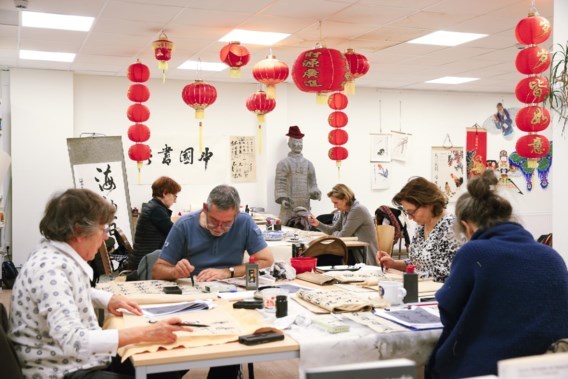The Vrije Universiteit Brussel (VUB) will stop working with a Chinese state-sponsored institute from next year, after the institute's director was accused by Belgium of spying for Beijing.
The Dutch-language university in Brussels cited concerns over "free research" as a central reason behind the board's decision to let its long-running contract with the Confucius Institute (CI) expire in June 2020.
The Chinese-funded institute has been working with the VUB since 2006, and is one of more than 500 institutes that the Chinese government has opened in cities across the world over a 15-year period.
"Collaborations are only an option for the VUB when the actions of partners concerned meet our basic principle of free research," VUB Rector Caroline Pauwels wrote in an online statement, adding that the CI no longer met "current policy objectives."
The VUB's decision comes after Belgian State Security Service banned the head of the institute, Xinning Song, from entering the country in October, after his work visa was not renewed.
Song, who had been living in Belgium for over a decade, was accused of putting his extensive network to work in the interests of Chinese intelligence services in Belgium, De Morgen reported.
While the university did not expressly mention Song in the statement, it said that "recent press coverage" of the institute had played a role in influencing the decision.
Last year, reports emerged that warnings sent to the university from State Security Service about the institute's suspected espionage activities went unheeded.
Several other Confucius Institutes, tasked with spreading and promoting Chinese language and culture abroad, have sparked controversy as they have been the subject of complaints by other universities, ranging from influencing teacher and research to surveilling Chinese nationals abroad.
Some of these accusations have seen universities in Canada, Japan, France and Germany also terminate their collaboration with the institute.
In the statement, the VUB said that future cooperations with other Chinese universities, scientists and students remained possible "on the condition that academic freedom and independence can be guaranteed in mutual trust."
In the online statement, Pauwels also said that as a "free university" the VUB worked to "invest in the talents of young people, not in regimes."
Gabriela Galindo
The Brussels Times

